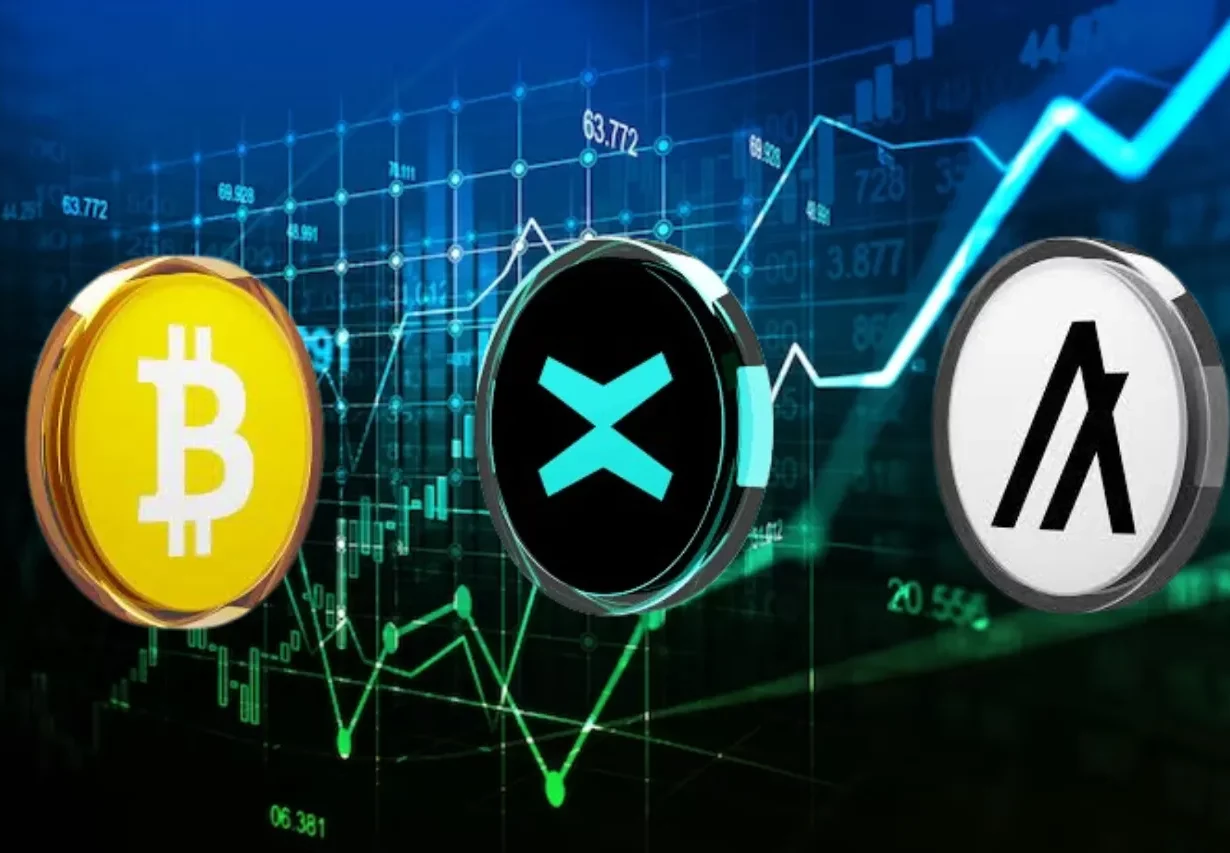In the fast-paced world of cryptocurrency, Bitcoin SV (BSV), MultiversX (EGLD), and Algorand (ALGO) stand out for their unique propositions. They’re not just digital assets; they represent distinct visions of blockchain’s future. BSV focuses on restoring Bitcoin’s original protocol, while EGLD and ALGO are carving new paths with innovative technologies and use cases.
As investors and enthusiasts look to navigate the complex landscape of crypto, comparing BSV, EGLD, and ALGO becomes crucial. They each offer different solutions to scalability, security, and decentralization, but which one has the edge? Dive into the details to understand how these platforms stack up against each other.
Understanding the strengths and weaknesses of BSV, EGLD, and ALGO is key for anyone looking to make informed decisions in the crypto space. Let’s explore the core features that set these cryptocurrencies apart and why they’re attracting attention in a crowded market.
Bitcoin SV (BSV)
Bitcoin SV, with its restoration of Bitcoin’s original protocol, aims to uphold the vision Satoshi Nakamoto outlined. BSV’s staunch advocates emphasize its commitment to stability and scalability. BSV supports larger block sizes to handle more transactions, a cornerstone for its scalability goals.
The network adheres to the principle of keeping transaction fees minuscule, making it a viable option for microtransactions. BSV’s backbone is the original Bitcoin script, which they believe is sufficient for complex operations required by modern applications.
Developers and businesses are encouraged to build on the BSV platform due to its robust data handling capabilities. They argue that BSV’s infrastructure is not only for financial transactions but also for various data-centric applications.
MultiversX (EGLD)
MultiversX, previously known as Elrond, is a blockchain protocol that seeks to offer extremely fast transaction speeds by using sharding. The platform prides itself on its efficiency and scalability, which are fundamental in facilitating smart contracts and decentralized applications (dApps).
- Sharding splits the network into smaller pieces, allowing transactions to be processed in parallel.
- Decentralized approach accelerates transactions while keeping costs low.
- Emphasizes on user experience and developer engagement.
EGLD, the native token, incentivizes network participants. MultiversX’s goal is to become the backbone of a borderless, globally accessible internet economy. Its ecosystem supports various applications including DeFi, enterprise use cases, and NFTs.
With its adaptive state sharding mechanism, MultiversX has surged as a robust competitor in the blockchain space, pushing the boundaries of throughput and efficiency. They’re not just about faster transactions but also enabling a richer, more scalable dApp environment that could potentially redefine how online services operate.
Algorand (ALGO)
Algorand is a Pure Proof-of-Stake (PPoS) blockchain designed for speed and efficiency. The platform ensures full participation, protection, and speed within a truly decentralized network.
It enables developers to create scalable blockchain-native solutions that are secure and governable. With its consensus mechanism, Algorand eliminates the need for mining, which positions it as an eco-friendly alternative in the crypto space.
The blockchain’s unique Atomic Swaps and Algorand Smart Contracts (ASC1s) facilitate error-free automatic transfers, propelling advanced financial products.
Dedicated to fostering an open, inclusive ecosystem, Algorand supports a wide range of applications from financial services to asset creation.
Comparing Scalability, Security, and Decentralization
When evaluating Bitcoin SV (BSV), MultiversX (EGLD), and Algorand (ALGO), three factors stand out: scalability, security, and decentralization. Each token emerges with distinct approaches and technologies tackling these criteria.
| Feature | Bitcoin SV (BSV) | MultiversX (EGLD) | Algorand (ALGO) |
|---|---|---|---|
| Transactions Per Second (TPS) | Moderate | High | High |
| Consensus Mechanism | Proof of Work (PoW) | Secure Proof of Stake (SPoS) | Pure Proof of Stake (PPoS) |
| Node Distribution | Less decentralized | More decentralized | More decentralized |
By leveraging its Pure Proof-of-Stake mechanism, Algorand offers high transactions per second without compromising decentralization. MultiversX, with its novel SPoS consensus, provides robust security while enhancing scalability. Bitcoin SV, while less decentralized, supports moderate TPS and remains faithful to Bitcoin’s original PoW model.
Exploring the intricacies of each platform reveals their unique contributions to the realms of finance and technology, paving the way for future innovations and applications.
Strengths and Weaknesses of BSV, EGLD, and ALGO
Bitcoin SV (BSV) excels in maintaining Bitcoin’s original vision, with a focus on stability and safe instant transactions. However, its commitment to the original Bitcoin protocol can be seen as a limitation in adaptability.
MultiversX (EGLD) offers a high degree of scalability and efficient transactions, which positions it well for enterprise use. Its newer consensus mechanism, though, may face scrutiny as it navigates security in practice.
Algorand (ALGO) stands out with its speed and eco-friendly Pure Proof-of-Stake approach but struggles with lower market penetration compared to its older counterparts.
Conclusion
Deciding between Bitcoin SV, MultiversX, and Algorand ultimately hinges on individual investment goals and beliefs in the direction of blockchain technology. Each platform carves out its own niche, whether it’s honoring the original vision of Bitcoin, pushing the boundaries of scalability, or pioneering eco-conscious crypto solutions. Investors and enthusiasts must weigh these aspects carefully. What’s clear is that the diversity of these platforms enriches the ecosystem, offering varied opportunities for users and developers alike. As the crypto landscape continues to evolve, it’s these unique attributes that will shape the future of digital finance and blockchain innovation.
Frequently Asked Questions
What is Bitcoin SV (BSV)?
Bitcoin SV (BSV) is a cryptocurrency that aims to adhere to the original vision of Bitcoin, focusing on stability and scalability, but it may have limitations in adaptability compared to other cryptocurrencies.
What makes MultiversX (EGLD) unique?
MultiversX (EGLD) is unique for its scalability and efficiency in processing transactions. It utilizes a newer consensus mechanism which makes it fast, though this mechanism might face future scrutiny.
How is Algorand (ALGO) eco-friendly?
Algorand (ALGO) is designed to be an eco-friendly cryptocurrency. It achieves its eco-friendly status by using a Pure Proof of Stake (PPoS) consensus mechanism, which requires minimal energy consumption compared to traditional mining.
What are the major strengths of each cryptocurrency discussed?
Bitcoin SV’s major strength is its commitment to Bitcoin’s original protocol, MultiversX’s is its efficient transaction scalability, and Algorand’s is its fast, eco-friendly blockchain technology.
What common challenges do these cryptocurrencies face?
A common challenge these cryptocurrencies face is achieving widespread market penetration and adoption. They also must prove the long-term viability of their underlying technologies and consensus mechanisms.




Leave a Reply